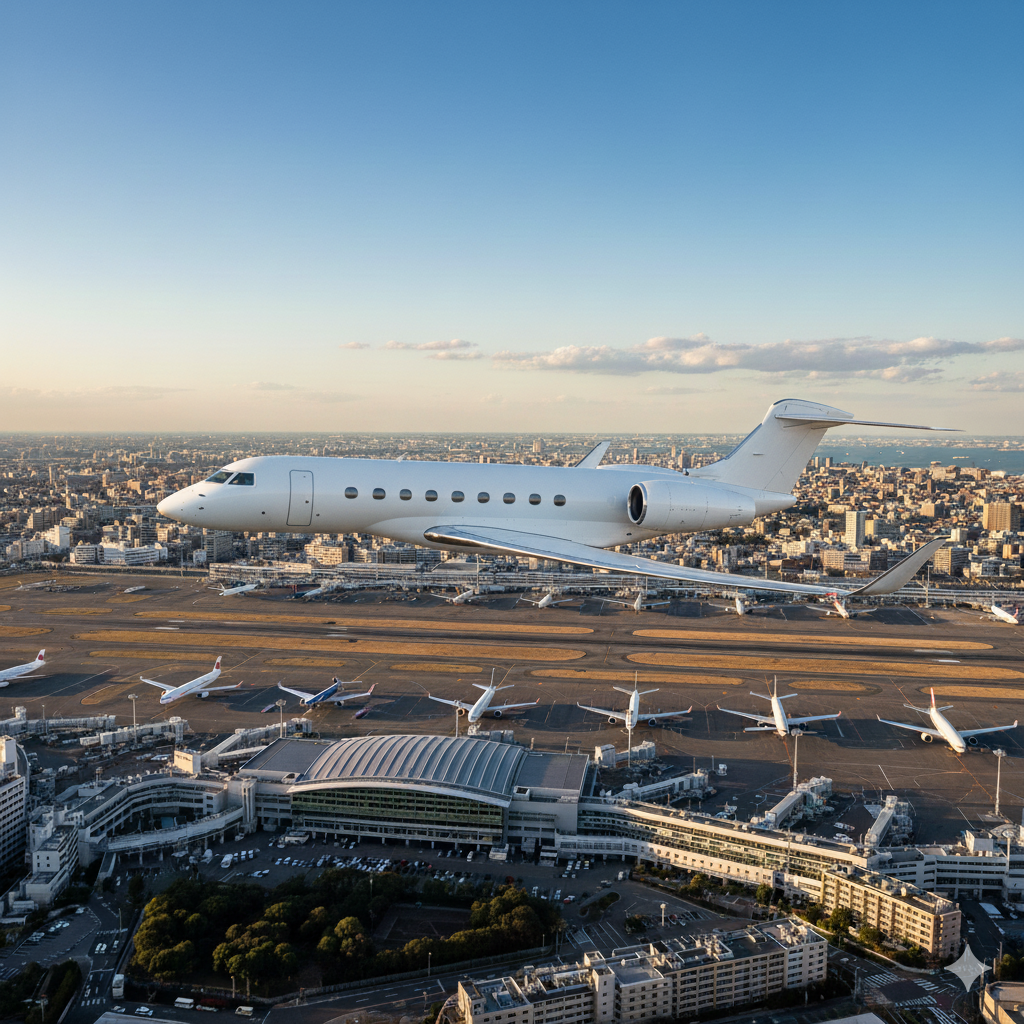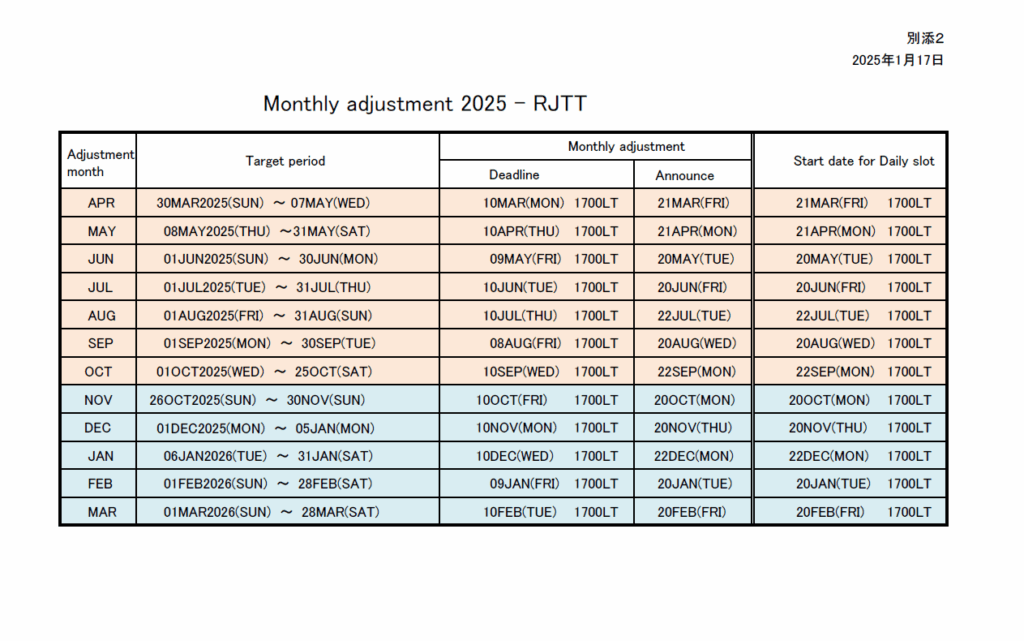Tokyo Haneda (RJTT): Business Aviation Slot Challenges and Winter 2025/26 Solutions

Tokyo Haneda (RJTT) remains one of Asia’s most sought-after airports and one of the most challenging for business aviation operators to access. Since the start of the Winter 2025/26 schedule on October 26, slot availability at RJTT has become severely constrained, creating significant operational challenges for the business aviation community.
The Challenge Intensifies
Haneda primarily serves scheduled airline operations, and with commercial demand now surpassing pre-COVID levels, business aviation requests face increased competition. Many daytime slot periods, particularly between 0800 and 2300 local, are already fully occupied. Japan’s Civil Aviation Bureau (JCAB) maintains strict control over slot allocation, and once capacity is exhausted, neither handlers nor operators can generate additional availability.
Why Access Remains So Difficult
 RJTT’s slot system prioritizes scheduled carriers above all else, leaving extremely limited allocation for general aviation. Demand spikes during major events, holidays, and weekends compound the challenge, making preferred arrival and departure times increasingly elusive.
RJTT’s slot system prioritizes scheduled carriers above all else, leaving extremely limited allocation for general aviation. Demand spikes during major events, holidays, and weekends compound the challenge, making preferred arrival and departure times increasingly elusive.
Despite the best efforts from local handlers, only JCAB has the authority to approve or modify slots. This means operators cannot rely on relationships or short-notice requests once allocation windows close.
Strategic Solutions for Winter Operations
According to Universal Aviation Japan, successful RJTT operations during Winter 2025/26 will require proactive planning and strategic flexibility.
Apply Before Monthly Deadlines
The most effective approach to securing RJTT slots is submitting requests before the official monthly application cutoff. JCAB coordinates slots on a monthly cycle, and late requests are not accepted once deadlines pass.
For operations between December 1, 2025, and January 5, 2026, applications must be submitted by November 10, 2025. JCAB will announce results on November 20, after which any remaining slots are allocated on a first-come, first-served basis.
Submitting early greatly improves your chances of receiving preferred timings.
Consider Narita (RJAA) as an Alternative
While RJTT – Slot monthly adjustment is farther from Tokyo’s city center, it offers several advantages for business aviation. Slots and parking are generally easier to secure, schedule revisions are more flexible, and the airport operates with fewer restrictions.
RJAA does have a curfew from 1500Z to 2059Z, but this can typically be accommodated with proper planning.
Key Operational Insights
Universal Aviation Japan emphasizes that operators planning Winter 2025/26 Haneda operations should act early, adhere to the monthly slot submission schedule, and remain flexible with timing and alternates. Close coordination with your trip support provider and local handler ensures requests are properly filed and on time.
RJTT’s slot constraints represent the new operational reality for business aviation in Tokyo. Success will depend on understanding these limitations and adapting your strategy accordingly.




